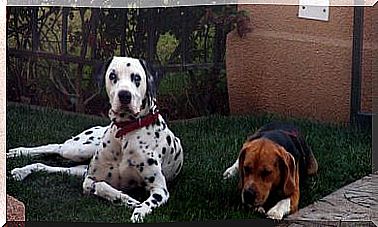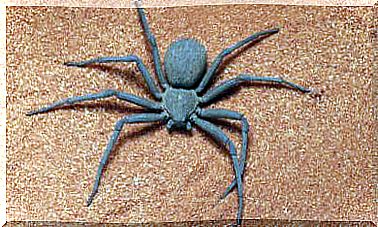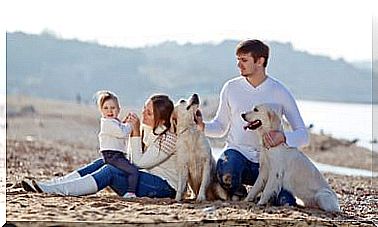What To Do If Your Dog Is Aggressive
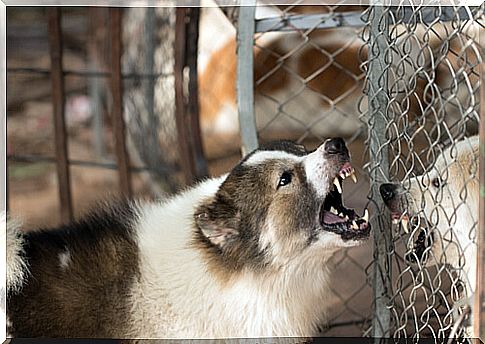
Aggression in dogs is one of the most feared problems for those who live with a dog. Fortunately, there are very few animals that actually have this problem, and it has a solution. To improve coexistence with your pet, we tell you what to do if your dog is aggressive.
Discover the causes of aggressiveness
In order to deal with a dog that is aggressive or reactive, you need to know what the cause is. If the root of your problems is treated, they will go away. So if your dog is aggressive, the first step is observation: when he reacts, to what and what gestures and body posture he has in order to know what he is thinking about.
It is very different if a dog is aggressive out of fear than if it is because it has had a bad experience and does not trust other dogs. In the same way, an animal that seems aggressive will not have the same treatment, but it only happens that it does not know how to play delicately or another that does so because it does not like other dogs.
When your dog starts having reactions that may seem aggressive, make a record of them. When does it happen? What had happened just before? What is your body posture? The more data you have and the better you have recorded it, the sooner you will discover what causes such discomfort.
Rule out that it is caused by pain or illness
In the same way that humans are irritable and in a bad mood when we have a toothache or ear pain, your dog may be hurt by something that justifies his bad temper. So when your pet begins to have problems with other dogs or aggressive reactions, the first step is a veterinary check-up.
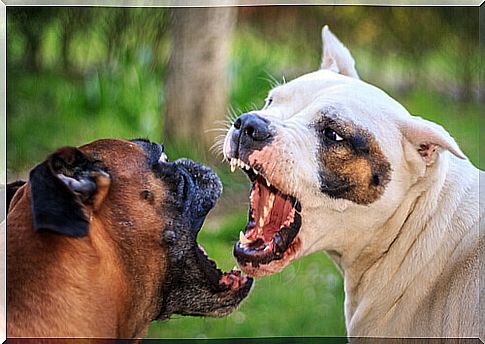
The main causes may be in the teeth or ears, but we cannot forget about joint pain, digestive problems and even some hormonal imbalance that can only be diagnosed with veterinary tests.
When you visit, tell your vet that his behavior has changed. Professionals will know what to look for or what are the most common ailments that can affect your behavior and well-being.
If the cause of his reactivity was rooted in a physical problem, by eliminating it, his behavior has been solved. Do not be left with doubts: if your dog misbehaves, consult a professional, even if it is to rule out that your dog is suffering pain or has some kind of discomfort.
Check if only your dog is aggressive only in times of heat
Sometimes we forget that dogs change their behavior during heat times. Both males and females, when we enter one of these seasons, they can become aggressive or territorial.
In the wild, an adult dog would encounter a female dog in heat very occasionally. However, in our cities he comes across dozens of animals every day, and in times of heat all the hormones and the tension of the rest of the dogs fill the parks and squares.

There are several possible solutions to this problem: sterilizing your pet is one of them. However, this reactivity will only occur temporarily and will pass on its own when the females leave the heat. Make the forecast that in spring and autumn your dog will act strangely so as not to scare you in a few months.
Avoid bad reactions
Having ruled out the physical cause and while you are investigating the reasons for their behavior, avoid bad experiences with your dog as much as possible. Exposing him to what worries him so much that it causes aggressive behavior will not help him.
Choose the hours of walk in which the fewest dogs will be found. If he barks and throws himself at trucks and motorcycles, avoid them; in the same way if your problem is children or adults. It will do you no good to repeatedly encounter what causes you bad reactions; it won’t do you any good to deal with this problem on every ride, either.
Consult an educator
You know that your dog does not have an organic cause that is causing a problem, more or less you are clear about the cause of his aggressiveness, and although you have avoided encountering what causes bad reactions, you do not know how to solve it.
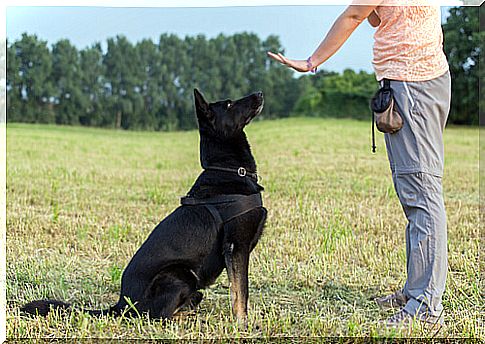
The solution you have left is to contact a canine educator. Aggression is a serious problem that only gets worse over time. A positive canine educator will listen to you and the dog, and after knowing the cause of his discomfort, he will decide on a personalized treatment for your case.
Choose an educator who treats you with respect and does not harm your pet. Reject professionals who use spike collars, electric collars or the dominance theory with your dog: these methods only hide the reasons for the aggressiveness and exacerbate the problem.
Aggression, fortunately, is a rare problem in dogs. To be able to treat it, it is essential to know the causes of these reactions: after ruling out that there is a physical problem, it is best to choose a canine educator who will help you both.
